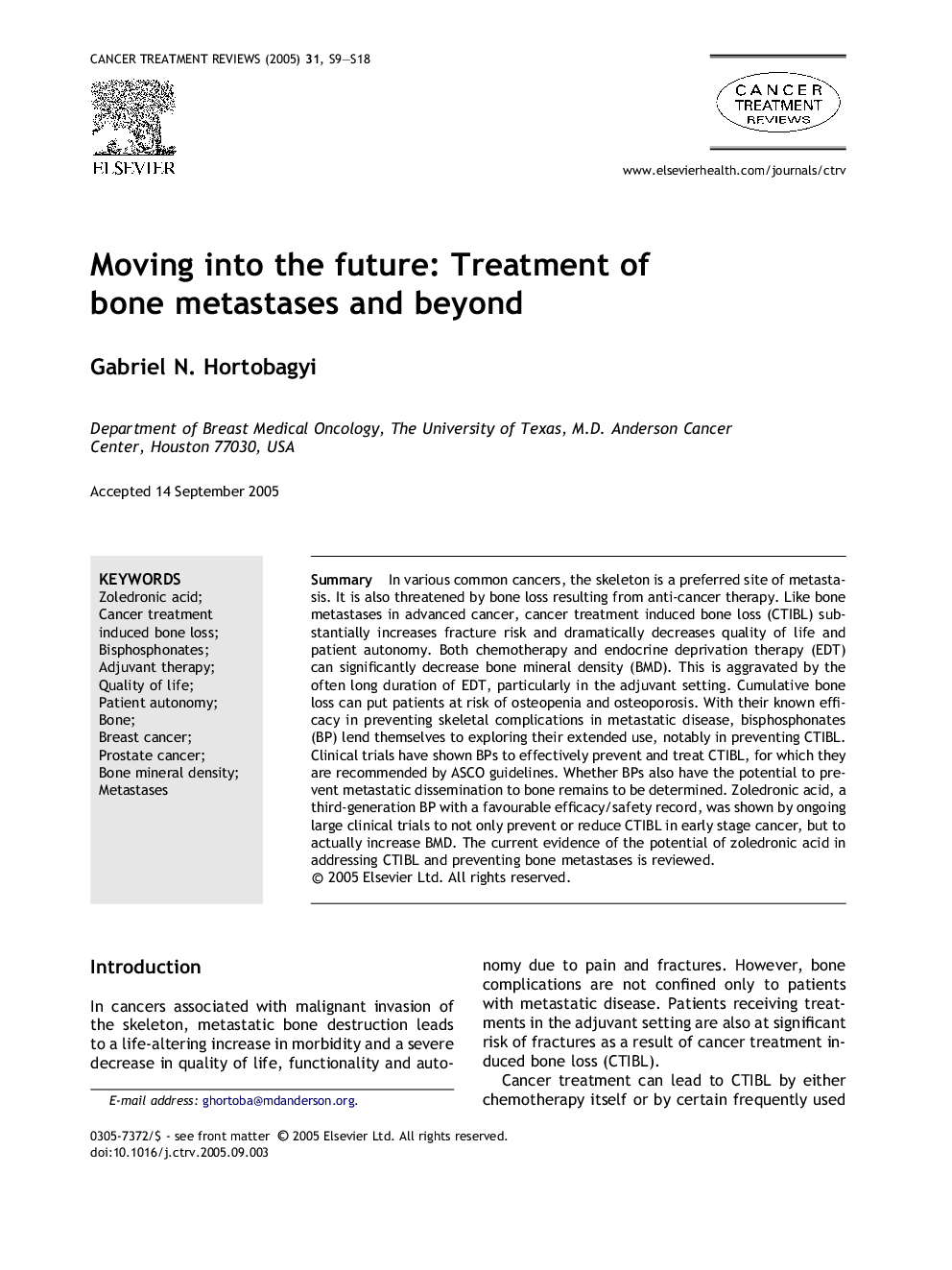| Article ID | Journal | Published Year | Pages | File Type |
|---|---|---|---|---|
| 9336640 | Cancer Treatment Reviews | 2005 | 10 Pages |
Abstract
In various common cancers, the skeleton is a preferred site of metastasis. It is also threatened by bone loss resulting from anti-cancer therapy. Like bone metastases in advanced cancer, cancer treatment induced bone loss (CTIBL) substantially increases fracture risk and dramatically decreases quality of life and patient autonomy. Both chemotherapy and endocrine deprivation therapy (EDT) can significantly decrease bone mineral density (BMD). This is aggravated by the often long duration of EDT, particularly in the adjuvant setting. Cumulative bone loss can put patients at risk of osteopenia and osteoporosis. With their known efficacy in preventing skeletal complications in metastatic disease, bisphosphonates (BP) lend themselves to exploring their extended use, notably in preventing CTIBL. Clinical trials have shown BPs to effectively prevent and treat CTIBL, for which they are recommended by ASCO guidelines. Whether BPs also have the potential to prevent metastatic dissemination to bone remains to be determined. Zoledronic acid, a third-generation BP with a favourable efficacy/safety record, was shown by ongoing large clinical trials to not only prevent or reduce CTIBL in early stage cancer, but to actually increase BMD. The current evidence of the potential of zoledronic acid in addressing CTIBL and preventing bone metastases is reviewed.
Keywords
Related Topics
Health Sciences
Medicine and Dentistry
Oncology
Authors
Gabriel N. Hortobagyi,
